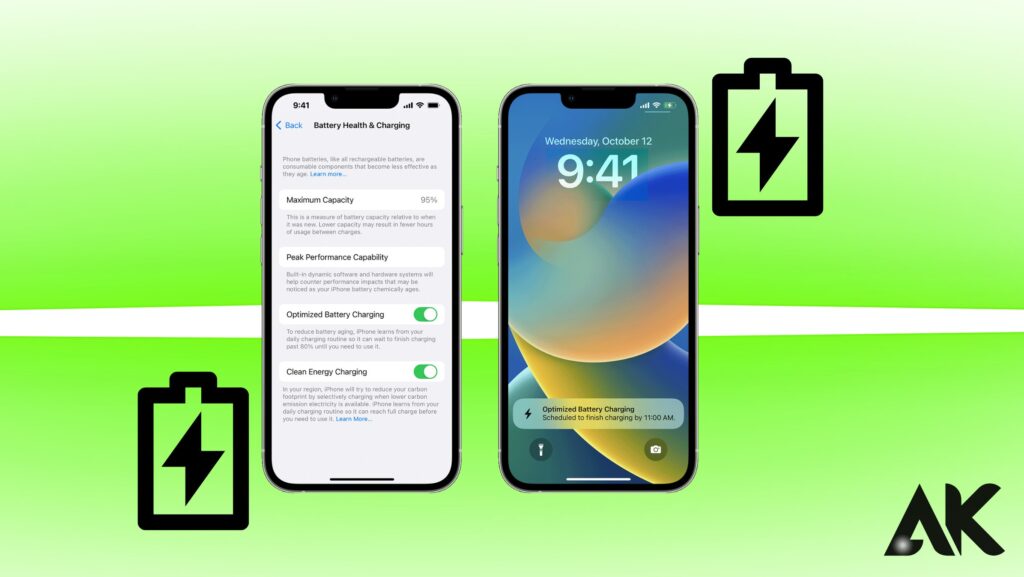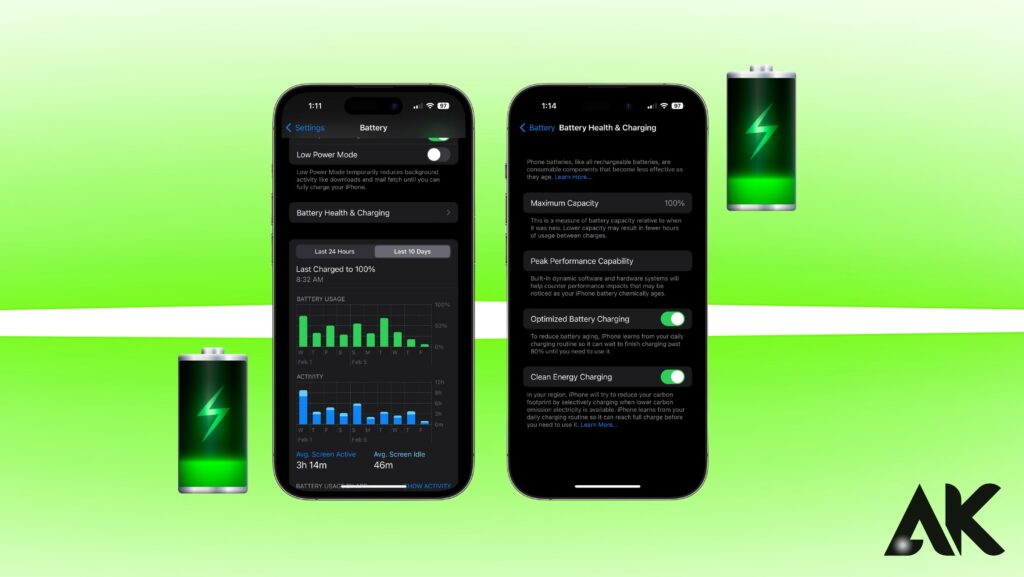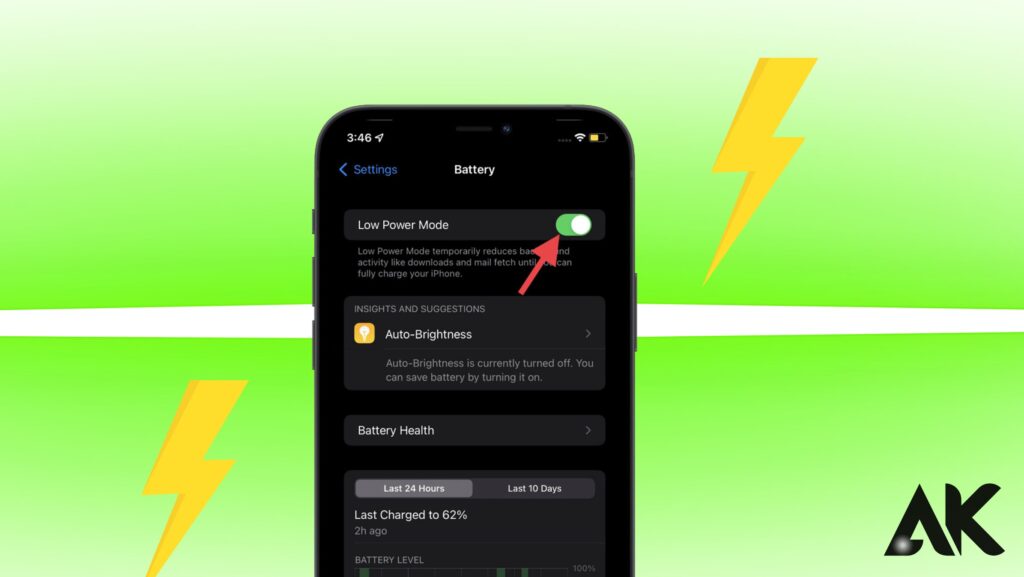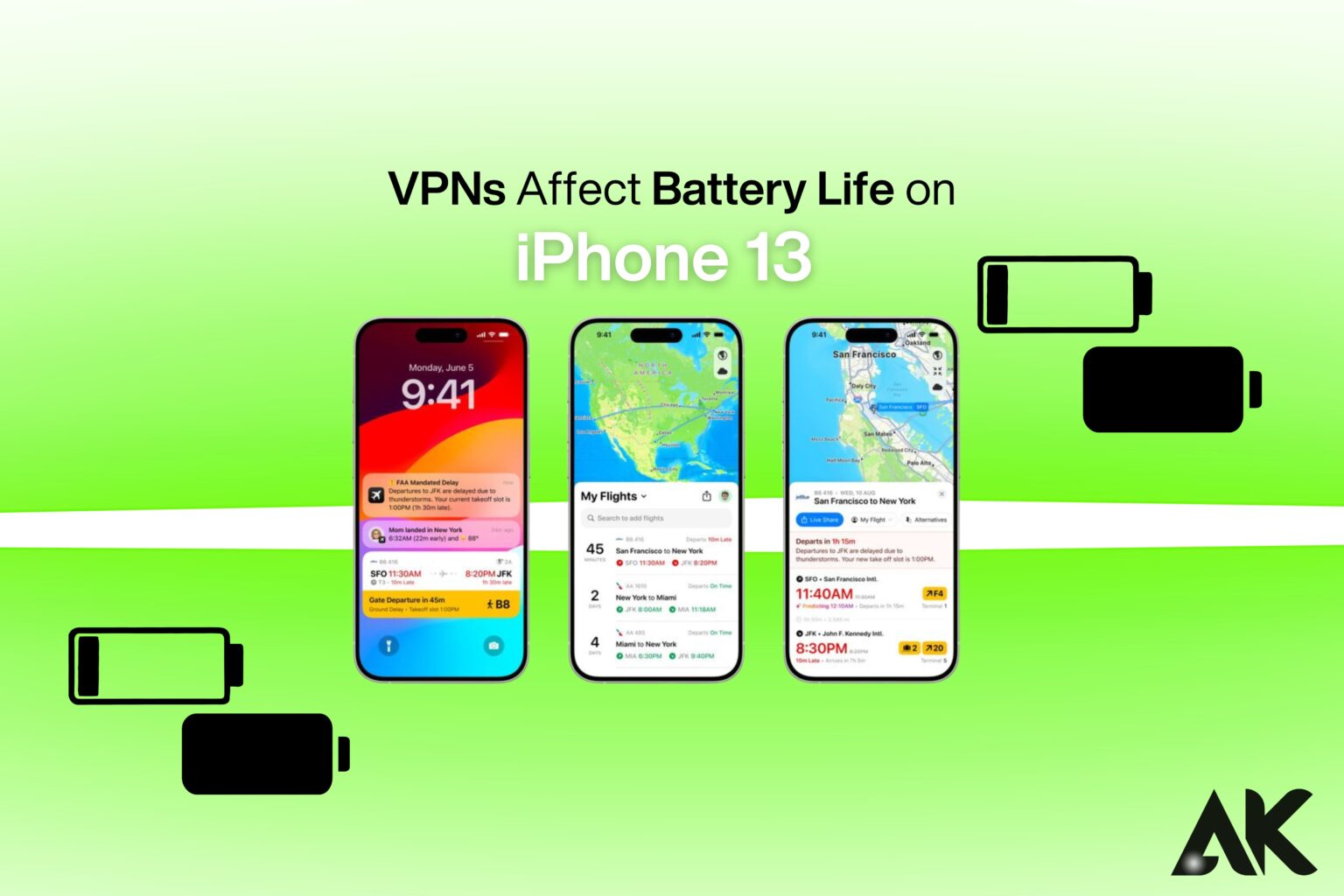Do VPNs affect battery life on iPhone 13? Is the use of a VPN a battery drainer? Have you ever observed that the battery of your iPhone 13 depletes more rapidly when you utilize a VPN? Virtual Private Networks (VPNs) offer security by encrypting your internet connection; however, this additional protection may result in increased battery life.
Your phone’s power consumption may be impacted by VPNs, which necessitate continuous data encryption and operate in the background. Nevertheless, the extent of battery depletion is dependent upon a variety of factors, such as the type of VPN, the distance between servers, and the level of encryption. In this article, we will examine the impact of VPNs on the battery life of the iPhone 13 and provide straightforward advice for reducing power consumption and still preserving security.
Do VPNs affect battery life on iPhone 13?
How VPNs Work & Why They Might Drain Battery

A VPN creates a secure tunnel between your device and the internet, encrypting all data traffic to protect your privacy. While this enhances security, it also increases your iPhone’s workload, which can lead to faster battery drain. Here’s why:
🔹 Continuous Background Activity—VPNs need to stay connected at all times to maintain security, keeping your internet active and using power.
🔹 Higher Data Processing – Encrypting and decrypting data requires extra CPU power, affecting battery life.
🔹 Server Distance—Connecting to a server that’s far away consumes more power because data travels longer distances.
🔹 Unoptimized VPN Apps—Some VPN apps are poorly optimized, causing unnecessary battery drain even when idle.
🔹 Free VPNs & Ads—Many free VPNs track user activity and serve ads, consuming even more resources.
💡 Key Insight: The impact on battery life varies, but most users experience a 5-15% faster drain when using a VPN continuously.
How Much Battery Does a VPN Actually Use?

The exact battery drain depends on your VPN settings, the server location, and how much you’re using the internet. Here’s a breakdown of factors affecting battery consumption:
| Factor | Impact on Battery Life |
|---|---|
| Encryption & Data Processing | More power needed to encrypt/decrypt all traffic |
| Background Activity | VPN runs continuously, preventing the device from sleeping |
| Server Distance | Further servers require more energy to maintain the connection |
| Free vs. Paid VPNs | Free VPNs with ads and tracking consume more battery |
| Protocol Used | Older protocols (e.g., PPTP) drain more battery than efficient ones (e.g., WireGuard) |
📌 Example: If you use a VPN for casual browsing, the impact might be small. However, if you’re streaming HD videos or gaming with a VPN, battery drain can be noticeable.
How to Reduce Battery Drain While Using a VPN

You don’t have to choose between security and battery life. Here are some practical tips to keep your iPhone 13 running longer while using a VPN:
✅ Use an Energy-Efficient VPN—Some VPNs are optimized for lower power usage. NordVPN, ExpressVPN, and ProtonVPN are good choices for minimal battery drain.
✅ Enable the “Auto-Connect” Feature Wisely – Only use auto-connect when necessary to prevent excessive background activity.
✅ Choose Nearby Servers—Connecting to a server in your country or region uses less power than connecting to one halfway across the world.
✅ Switch to a Lightweight VPN Protocol—Use WireGuard or IKEv2 instead of older, power-hungry protocols like OpenVPN.
✅ Turn Off VPN When Not Needed—If you’re on a trusted Wi-Fi network, turning off your VPN can save battery.
✅ Optimize Other Battery-Draining Features—Lower screen brightness, disable background app refresh, and close unused apps to extend battery life while using a VPN.
Solutions for Better Battery Management with VPNs
Here are some practical solutions for better battery management while using a VPN:
- Select a VPN that is Energy-Efficient
Consider the use of premium VPNs, such as NordVPN, ExpressVPN, or ProtonVPN, which are renowned for their superior energy efficiency and optimization. Ads and data tracking are frequent features of free VPNs, which can significantly drain your battery. Therefore, it is advisable to refrain from using them.
- Employ VPN protocols that are lightweight.
Change to VPN protocols that are more efficient, such as WireGuard or IKEv2, which are engineered to consume less processing power than antiquated protocols like OpenVPN. This has the potential to significantly reduce battery depletion.
- Choose VPN servers that are located in close proximity.
To conserve battery life, select a server that is closest to your physical location, thereby reducing the distance your data must travel. The power required to sustain the connection decreases as the server’s proximity increases.
- Turn off the VPN when it is not in use.
When you are not in need of it, disable your VPN. If you are connected to a reliable Wi-Fi network, disabling the VPN can conserve battery life by enabling your phone to enter a more profound inactive mode.
- Enhance the settings of your iPhone
When feasible, modify your iPhone’s battery-saving settings by enabling Low Power Mode, disabling background app refresh, and reducing screen luminance. While employing a VPN, these modifications can optimize battery life.
- Utilize VPN auto-connectivity with caution.
Auto-connect features for VPNs should be avoided when they are not required. Reduce background activity and conserve battery life by manually connecting to a VPN exclusively when you are on a public or untrusted network.
By following these tips, you can enjoy the security benefits of a VPN while managing your iPhone’s battery life more effectively.
VPNs cause battery drain on iPhone 13 for several reasons:
- VPNs offer privacy by encrypting your internet traffic. This encryption entails a substantial amount of processing power from the CPU of your iPhone, resulting in increased battery consumption. The battery is depleted more rapidly due to the constant need to encrypt and decrypt data, which increases the workload of your phone.
- Background Activity: In order to guarantee the security of your data, VPNs must remain connected in the background. This continuous activity prevents your iPhone from entering full inactive mode, resulting in increased battery consumption even when you are not actively using the internet.
- Consistent Network Connection: A VPN maintains a secure connection between your device and the VPN server. This necessitates a greater consumption of power by your phone, particularly when you are connected to a server that is located at a distance or using mobile data.
- Server Distance: Data must traverse longer distances when you establish a connection to a VPN server that is situated at a considerable distance from your physical location. This not only results in an increase in latency but also consumes more energy to maintain the connection, which accelerates the battery depletion.
- Protocol Complexity: In order to preserve the security of the VPN connection, certain protocols, including OpenVPN, necessitate additional processing power. An increase in battery consumption may result from these antiquated protocols. Newer protocols, such as IKEv2 or WireGuard, are more efficient and are better optimized for power savings.
VPNs cause battery drain primarily due to their constant background operation, encryption demands, and server connection requirements. Using efficient protocols and connecting to local servers can help reduce this drain.
Tips for Minimizing Battery Drain While Using a VPN
- Use an Efficient VPN: Choose a VPN like ExpressVPN or NordVPN, which are optimized for battery efficiency.
- Switch to Efficient Protocols: Use WireGuard or IKEv2, as they consume less power than older protocols.
- Connect to Local Servers: Choose servers closer to your location to reduce power consumption.
- Turn Off VPN When Not in Use: Disconnect from the VPN when on trusted networks like home Wi-Fi.
- Enable Low Power Mode: Activate Low Power Mode to reduce battery usage.
- Lower Screen Brightness: Dimming your screen helps conserve battery while using a VPN.
These simple steps can help you use a VPN without draining your iPhone’s battery too quickly.
Conclusion
The decrease in your iPhone 13’s battery life is doable with the appropriate settings and optimizations, despite the fact that using a VPN does have an impact on it. Although a 5-15% increase in battery drain may occur, the use of battery-friendly protocols, the selection of adjacent servers, and the implementation of an efficient VPN can minimize power loss.
Especially when traveling or utilizing public Wi-Fi, it is useful to invest in a reputable VPN if privacy and security are of high importance to you. Smart decisions can be made to maintain security without sacrificing battery life.
FAQs
Is it true that VPNs significantly deplete the battery of my iPhone 13?
Certainly, VPNs can deplete the battery of your iPhone by encrypting your internet traffic, necessitating continuous background activity, and maintaining an active connection. Nevertheless, the impact can be mitigated by optimizing parameters and utilizing energy-efficient VPNs.
Is it possible to utilize a VPN without significantly affecting my battery life?
Yes, it is possible to reduce battery depletion while simultaneously using a VPN by selecting lightweight VPN protocols such as WireGuard or IKEv2, connecting to nearby servers, and enabling Low Power Mode.
Is the battery consumption of free VPNs greater than that of paid VPNs?
In general, the answer is affirmative. In comparison to premium VPNs, free VPNs frequently utilize more secondary processes, have less efficient protocols, and display advertisements, which can result in an increase in battery consumption.
Is the functionality of my iPhone affected by the use of a VPN?
The encryption and data routing mechanisms of VPNs can slightly reduce performance. Nevertheless, the selection of VPN protocols and applications that are optimized can help to reduce the negative effects on performance.
What are the signs that a VPN is significantly depleting my battery?
Check the battery usage in the settings if you observe that your iPhone’s battery is depleting at a quicker rate than usual. It is probable that the VPN application is contributing to the drain if it displays a high level of consumption. It is advisable to either utilize a VPN that is more efficient or transfer servers.

